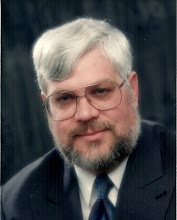The Role of Science in Western Culture (cont.)
The Scientific Method and Truth
One really important reason that the scientific worldview has taken over Western culture, despite feeble resistance by believers, is because the method it uses is so successful at figuring out what is true and what is false. And it is successful because, unlike other ways to seek truth and describe reality, it is truly progressive. Before the scientific method took charge, Truth was handed down by people with authority. And because we didn’t have bumper stickers back then to tell us to, we didn’t question authority. So, if you believed that everything that Aristotle wrote was true, you wouldn’t look for evidence that his worldview was flawed precisely because it was your worldview as well. No wonder people thought that reality couldn’t change.
On the other hand, the scientific view of the world is based on the idea that whatever we think is true is only partial and ever-changing. Every discovery, no matter how firmly supported and widely accepted, is assumed to be just one step on a journey, one piece of an always-growing puzzle. So even when a theory is “proved” (a term scientists don’t like to use, except maybe when talking down to us laypeople), it simply becomes the basis for new hypotheses. On the other hand, hypotheses that aren’t confirmed by experiments are thrown out, and scientists who continue to cling to them are pushed to the margins of the scientific community and lose its respect.
Because of this forward-moving quality, the scientific method gets better and better at predicting the future, that is, what develops from current conditions and events. This is most often seen in the laboratory, of course, but it also applies to everyday happenings as well. The weather report is the most obvious example of this, but such areas as medicine and engineering are also based largely on the ability of the scientific method to predict an outcome even when the exact conditions and events leading to that outcome have never been seen before.
Even beyond these everyday examples, science was able to predict such (literally) earth-shaking developments as the splitting of the atom long before they were accomplished. Newton, much less prophets and philosophers, couldn’t have foreseen such a discovery, but the scientific method that Newton pioneered created the conditions that eventually led to the theories that resulted in nuclear fission. In other words, scientists didn’t just stumble upon nuclear fission. Instead, the ideas of such visionaries as Albert Einstein led scientists to perform experiments that, through the process of constant fine-tuning, enabled them to create the first controlled nuclear reaction and then, sadly, the uncontrolled nuclear reaction of the atomic bomb.
Such developments as these have led us to give the scientific method a level of authority far greater than any other. Maybe with the exception of the most willfully closed-minded religious believers, we have come to view science as the most reliable way of finding the truth, the most consistent and powerful way to learn how the world really works. While we may embrace scraps of our ancestors’ faith, the reality is that we place far more trust in scientists than we do in prophets and priests, at least on a day-to-day basis.

No comments:
Post a Comment